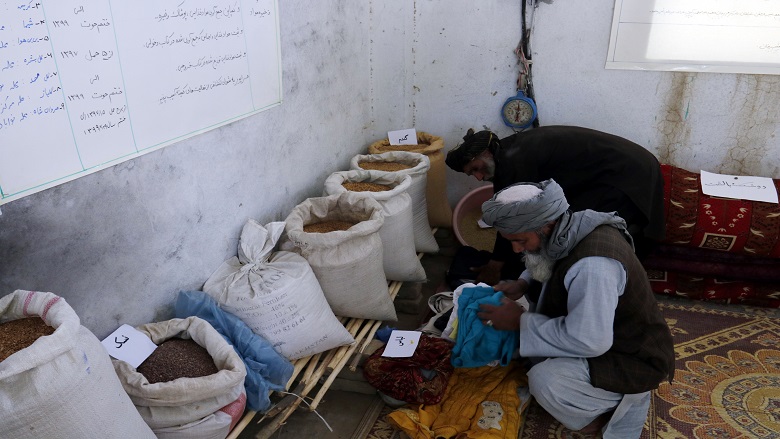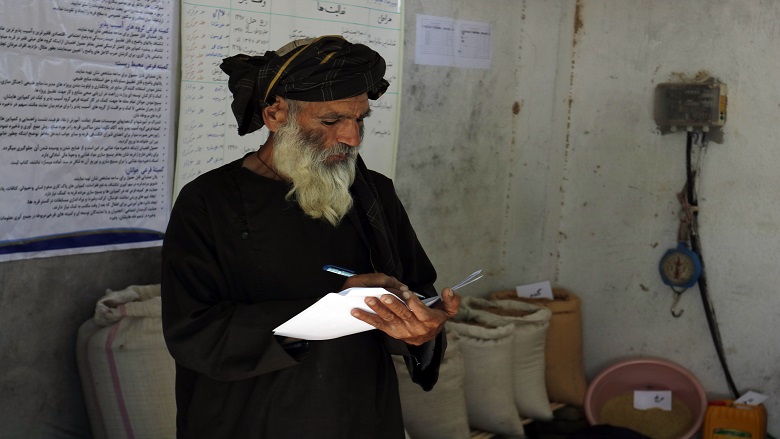BALKH DISTRICT, Balkh Province – Youngsters and elders are gathered in a corner of a muddy yard in Zargaran village, more than 20 kilometers outside the provincial capital of Mazar-e-Sharif. Handwritten posters lining the walls describe the village—its location, development plan, population, and resources. .
Established by Zargaran’s Community Development Council (CDC) with support from the Citizens’ Charter Afghanistan Project (Citizens’ Charter), .
“To date our progress is very good,” says Mohammad Esa, 45, Chairperson of the CDC. “We established the grain bank through which we collect things like wheat, rice, clothes, and rugs. We register them in a book and then distribute the goods among people when they need it most.” Esa believes that the grain bank can bring locals together as they work to make their village a better place for all.
to set up community philanthropic food reserves that can help the most vulnerable households, including internally displaced persons and returnees. The initiative is part of the Citizens’ Charter Emergency Regional Displacement Response, which supports collective community action aimed at improving social inclusion and protecting the ultra poor and vulnerable. Over 500 grain banks have been established across the country, with plans to scale up.
On entering a village, . One process is the Wellbeing Analysis, which helps a CDC identify poor and vulnerable households in the community and tailor initiatives to address their needs.
. Six of the village’s 51 households (12 percent) are the most affluent, while 13 families (25 percent) are middle class. .
The poor and ultra-poor families are mostly laborers with no farmland. In the lean seasons when there is no work, these households face food shortages and struggle with hunger. .



